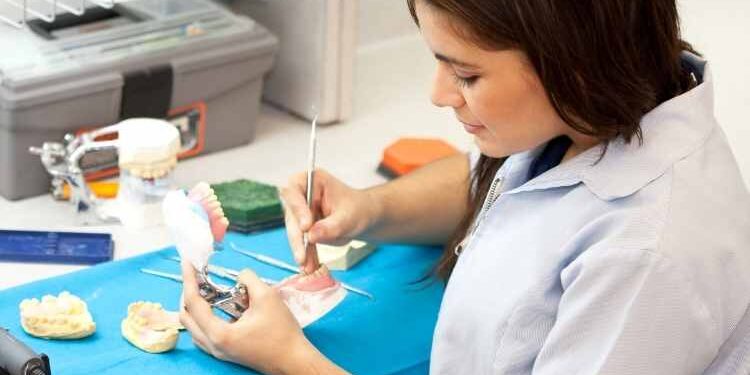Choosing a career path requires a lot of deep thought. You need to decide on what you love and what you’re best suited for. In most cases, the sense of accomplishment and satisfaction from your job may be the only thing that’ll keep you going. If you’ve decided to become a dental laboratory technician, you’re on your way to being a lab technician at an establishment like Burbank Dental Lab.
Putting yourself on the path to achieving your dreams is important. Read below on what a dental laboratory technician does and how to become one in 5 steps.
What is a dental laboratory technician?
A dental laboratory technician is a trained clinical support staff that works with dentists. They function mainly to help dentists with the technical aspect of their job, such as crafting devices like dental crowns, dentures, etc.
Dental laboratory technicians do not get as much patient interaction as the dentist who interfaces with the patient, examines them, and diagnoses oral health problems. Instead, they work on the instructions of the dentist to ensure that patients get the appropriate treatment devices for their oral health needs.
Practitioners may decide to specialize in different areas within the dental laboratory technician field. Some specialized areas include veneers, dental bridges, etc.
Below is a quick summary of what to expect working as a dental laboratory technician.
Degree requirement: None required, but you may obtain an associate’s degree certificate
Training requirement: You can pick up the experience needed on the job.
Education/field of study: Dental laboratory technology
Certification: Available but optional professional certification
Median Salary: About $42,000/annum
Becoming a Dental Laboratory Technician
Becoming a dental laboratory technician requires skills and the ability to learn quickly while on the job. You’ll be exposed to various dental problems and solutions for them. For example, you’ll be exposed to the steps required to skillfully create accurate dental appliances like dentures, veneers, crowns, and bridges. Depending on patient needs, you may also be exposed to other oral prosthetics in the laboratory.
Each prosthetic will have to be crafted following specific measurements. You’ll have to ensure that those measurements are fully honored to reduce wastage and increase patient satisfaction.
Becoming a dental laboratory technician can be easy or tough, depending on your perspective. Below are the common steps to take.
Step 1: Begin Prospecting from High School
Congratulations if you’ve decided to become a dental laboratory technician while in high school. This is one of the perfect times to shadow a dental laboratory technician. Consider yourself an intern and learn from them. This learning curve is one of the few steps that will help you build the career that you want.
A major advantage of interning at this stage is that you can easily decide whether you still want to be a dental lab technician or not. If you’re resolute, you can gain valuable skills and experience that will form the foundation of your next job.
You will also need to focus on core subjects like mathematics, computer technology, woodshop, and art to improve your skills in preparation for your career path.
Step 2: Enroll in a Dental Laboratory Technology Program
Enrolling in a training program is a wise choice, especially if you’re already out of high school. There are many programs that offer the training you require to become a dental laboratory technician. However, you should conduct in-depth research on the program providers to be sure they offer the right training.
You can consult with experienced dental lab techs to seek advice on recommended programs to take. You can also proceed to the certification level to improve your chances.
Step 3: Get a Job
Learning on the job is one of the biggest perks of being a dental laboratory technician. You can get a job quickly and easily from dental practices in and around you. The job market for dental laboratory technicians is growing, and you may be lucky to get one that offers training perks with it.
Please note that private practice and commercial practice offer different levels of challenges and workload. Research each option carefully before making a decision.
Step 4: Complete Job Training
The chances of on-the-job training exist if you’ve been hired as an untrained dental laboratory technician. All you need to do is complete the training, ace it, and become a fully confirmed staff. You can start a burgeoning career from there and grow your experience and expertise over the coming years.
Step 5: Certifications are Important
While not everybody chooses to, certifications are important if you can afford them. Having a certification further cements your experience and expertise. It also opens you up to more opportunities and increased salary.
Ask about available certifications and choose which ones best represent your interest or give the best opportunities.
